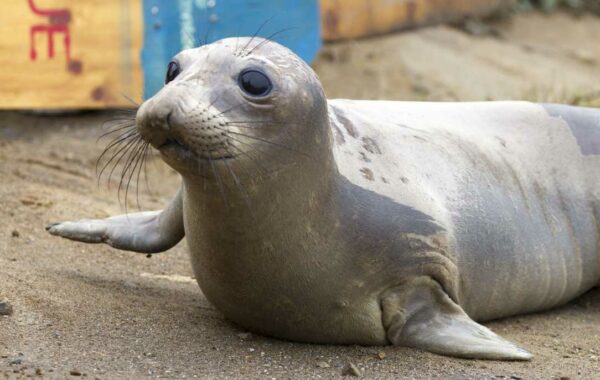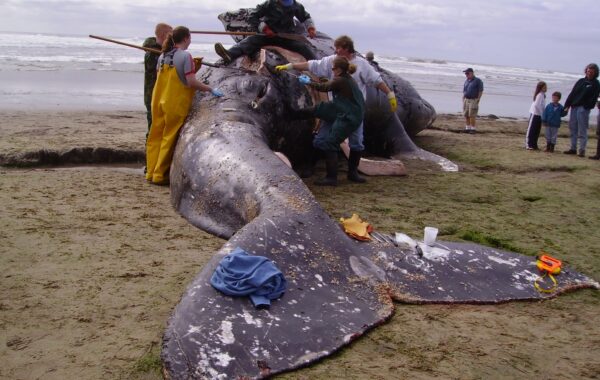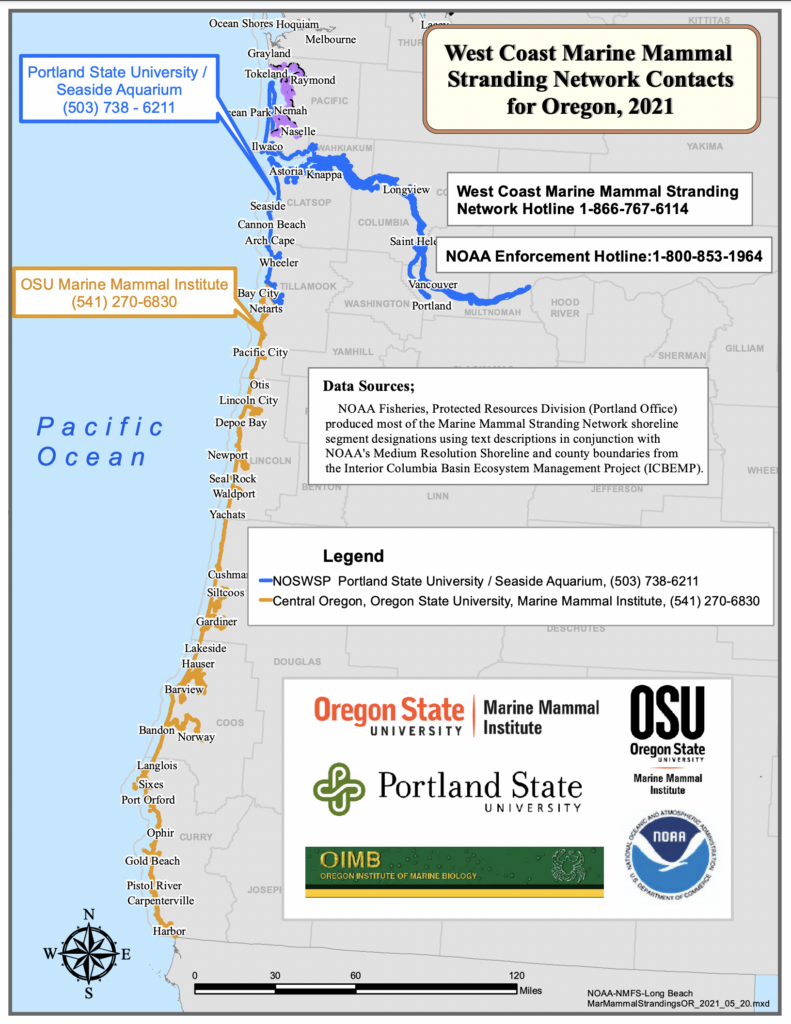Community Science
Alert authorities when you spot sick or dead marine mammals. Check your location and call the appropriate organization, then scroll down to submit a stranding report.

Portland State and Seaside Aquarium
Seaside Aquarium responds to strandings from north Tillamook Bay to southwest Pacific county in Washington, working in partnership with the Northwest Marine Mammal Stranding Network at Portland State University. Undergraduate and graduate students can participate in Northwest Marine Mammal Stranding Network activities for the northern Oregon and southern Washington coasts. Dr. Debbie Duffield coordinates the stranding network for this region, and activities include investigation of strandings; necropsies for determination of cause of death for whales, dolphins, seals, and sea lions; retrieval of specimens; and preparation of skeletons for the Vertebrate Biology Museum.
- Contact: (503) 738-6211
Oregon Marine Mammal Stranding Network
The Stranding Program at Oregon State University responds to strandings from southern Tillamook Bay to California. Jim Rice manages the Marine Mammal Stranding Network for the entire Oregon coast. He organizes regular meetings of Oregon stranding responders, trains volunteers, and provides educational outreach. Activities include collecting Level A, B, and C data from stranded mammals, conducting necropsies, collecting and banking tissues, and sharing specimens and information with collaborating researchers. Jim maintains the database for all Oregon stranding responses and reports stranding data to NOAA Fisheries.
- Contact: (541) 270-6830

Portland State and Seaside Aquarium: (503) 738-6211
Once you have reported the animal, please complete the stranding report below to help us keep track of reported incidences. Thank you for helping our marine mammals!
Oregon Marine Mammal Stranding Network: (541) 270-6830
Once you have reported the animal, please complete the stranding report below to help us keep track of reported incidences. Thank you for helping our marine mammals!
To join a community science project, start by adopting a CoastWatch Mile
Community Science

